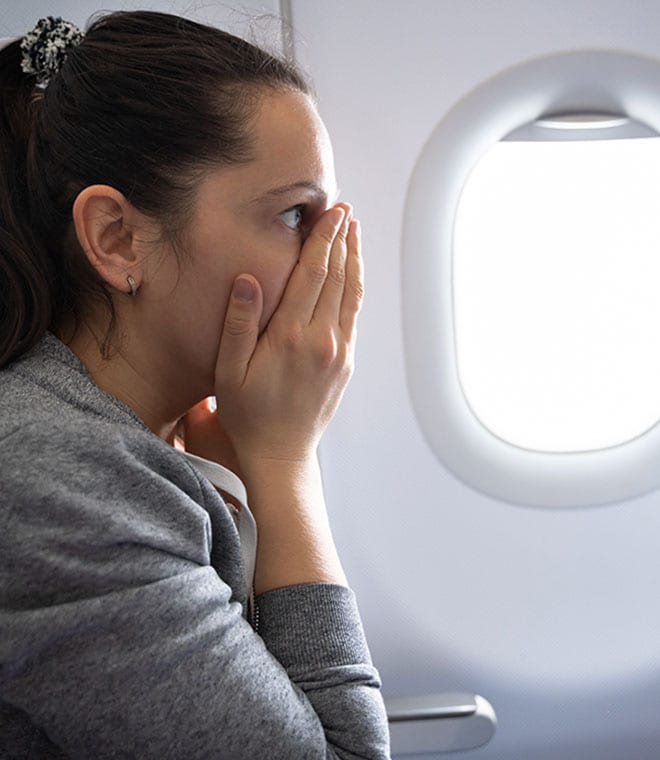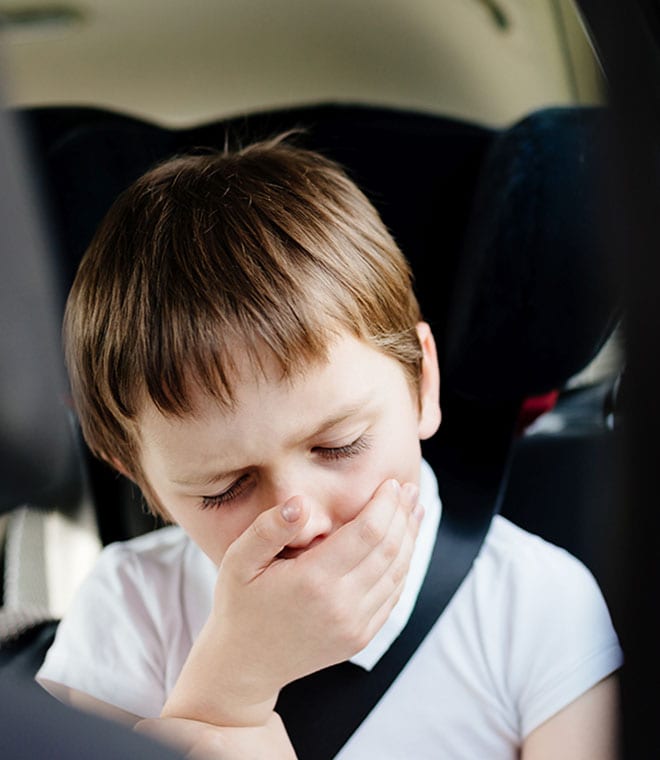Health
What are motion sickness symptoms?
By Ruben J. Rucoba, MD Aug 23, 2024 • 2 min
If you've ever felt sick to your stomach when traveling by car, plane or boat, you may have experienced motion sickness. While it’s not usually harmful, motion sickness can cause a variety of troublesome symptoms.
What is motion sickness?
Motion sickness is a sick feeling triggered by movement. It's most common when moving in a car, boat or plane, but it can also occur on amusement park rides or during virtual-reality experiences.
What are the symptoms of motion sickness?
Motion sickness symptoms include:
- Nausea (this is the main symptom in those older than 12)
- Vomiting
- Dizziness (this is the main symptom in those younger than 6)
- Unsteady walking or balance
- Sweating and/or cold sweats
- Excessive salivation
- Headache
- Drowsiness
- Decreased appetite
- General discomfort
- Apathy
- Hyperventilation
- Increased sensitivity to odors
- Warm sensation
- Pale skin
- Irritability
There are a number of over-the-counter medications and prescription treatments available for motion sickness. Speak with your healthcare provider before taking any medications. Adults who have a history of motion sickness may benefit from prescription treatments before long journeys (a cruise, for example). After travel, see your healthcare provider if you experience ongoing dizziness, vomiting or headache, or if you develop chest pain or any other new or worsening symptoms.
Children should be seen by a healthcare provider right away if they look or act very sick or the problem is urgent.
Updated by Julie McDaniel, MSN, RN, CRNI, August 2024.



